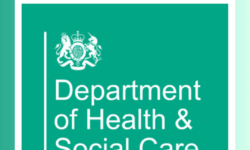We are delighted to see SMA is on the list of over 200 treatable conditions that was published today. Genomics England describes the ‘Generation Study’ as an “NHS-embedded research study which aims to understand whether sequencing babies’ genomes can help to discover rare genetic conditions earlier. ” The Generation Study will sequence the genomes of 100,000 newborns to look for a specific set of rare genetic conditions that affect babies and can be acted on.
Dr David Bick, Principal Clinician for the Newborn Genomes Programme says: “The newborn Genomes Programme is a research study, designed to find children with treatable conditions as newborns, and get that treatment started before they get sick. […] With the newborn programme, by finding these children very early, we can keep them healthy, and help these children live their best lives.”
The study is not an alternative to newborn screening, its purpose is to evaluate the feasibility of screening newborns for a larger number of childhood-onset rare genetic conditions in the NHS, using whole genome sequencing. It will be exploring the potential risks and benefits of storing an individual’s genome over their lifetime.
On Friday 6th October, our Advocacy Lead, Portia, has been invited to speak on a panel entitled ‘The Human Element’ at the international ICoNs conference, bringing lived experience and the patient perspective to a discussion about the ethics of genomic screening and the impact on real people’s lives. The conference will bring together professionals working in the genomic screening space from across the world.
CEO, Giles Lomax says: “Today we were delighted to hear the announcement from Genomics England that Spinal Muscular Atrophy has been included on the generation study. It’s particularly exciting as there are a number of life enhancing treatments readily available on the NHS, so if any babies are identified as having SMA, interventions can be made very quickly. We know that early access to treatment can have positive outcomes for children born with the condition.
The study will also allow us to further understand the prevalence of the recessive SMA gene within the community given the size of the large data group being collected and underline the need for SMA to be included on the Newborn screening programme, also know as the heel prick test. “
We would love to hear any thoughts you have on the ethics of genomic screening, so if you have any insights that you would like to be heard at the conference then please email portia.thorman@smauk.org.uk



